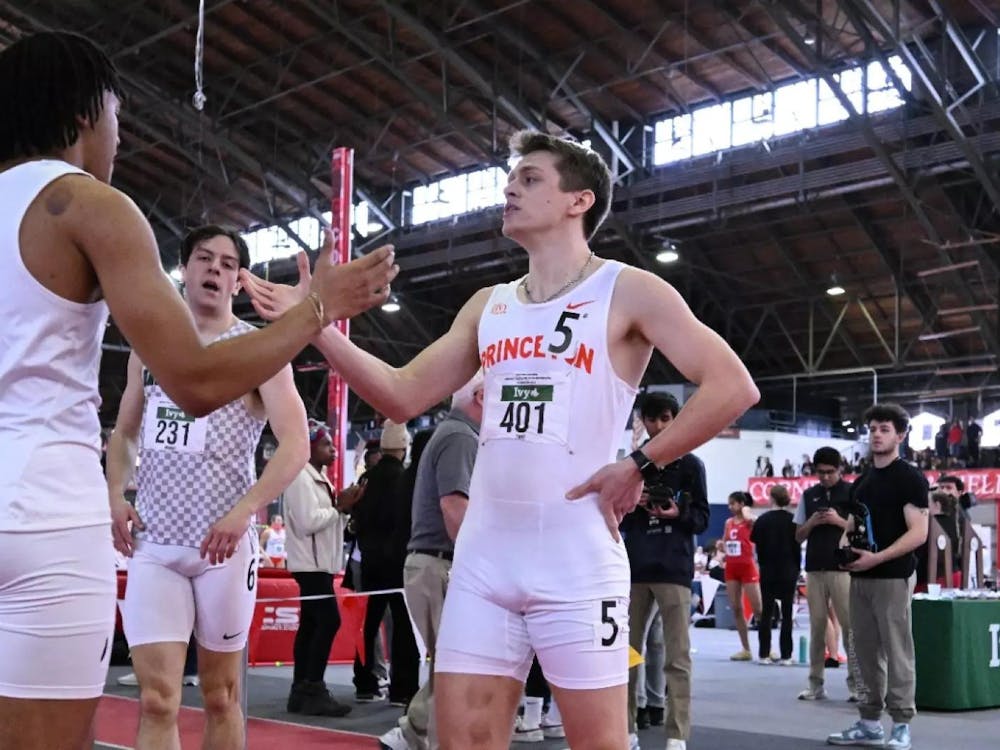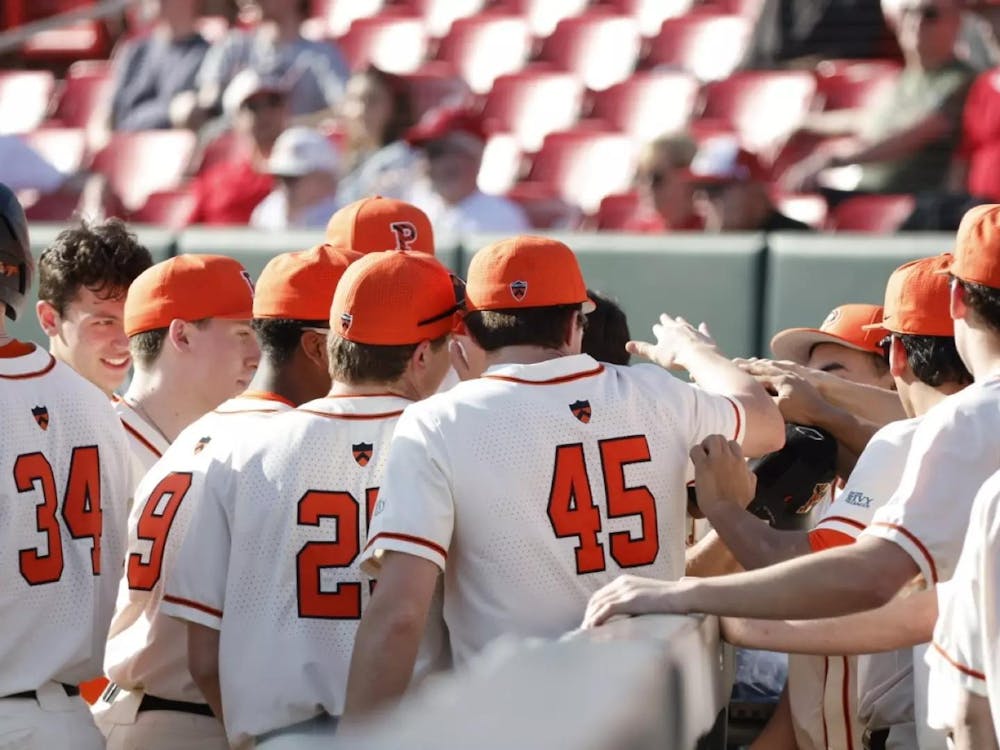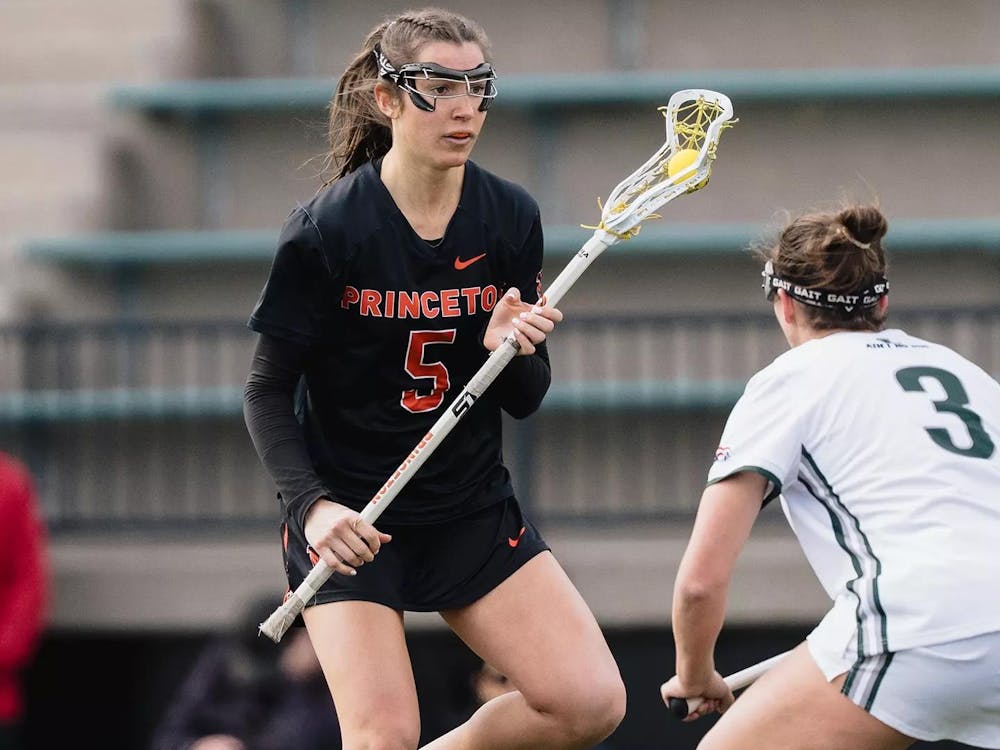With baseball season in full swing, young children and their parents are looking at major leaguers in admiration and thinking how great it would be to be a baseball star.
While I do not pretend to be a superb baseball player, I have played a great deal and am an avid fan. I don't have that much knowledge to offer, but I do have one tip that will immediately make you or your child the most valuable player on your team and the most likely to make it to the pros:
Be left-handed.
That's it. No swing tips, no fielding tips. Just plain and simple — be left-handed.
This is a big one for many reasons. First, at the plate, being left-handed means you're already about two steps closer to first base. While just two steps are a huge advantage by themselves, as the left-handed phenom I am, I learned to further exploit that by stepping out when I swung.
Of course, I did this naturally because I was scared of the ball until about midway through my senior year in high school. While virtually eliminating any chance to hit the ball hard, it did give me that extra head start out of the box that was crucial in legging out those swinging bunts that I would tink down the third baseline.
The advantages at the plate don't end there, though. Most pitchers are right-handed, and most pitchers have a curve ball. For a right-handed batter, a good curve ball is going to start off coming right at their head. That's scary. For a lefty, though, a curve ball is going to start on the outside and work its way in, floating right across the strike zone. The ball is actually getting closer to you — what more could you ask for in a pitch?
Furthermore, some pitchers won't even throw a lefty a curve, ensuring a steady diet of fastballs right down the middle.

The fact that most pitchers are right-handed shows another advantage of being left-handed. A left-handed pitcher is extremely valuable to teams. You don't even have to be good. I've seen lefty pitchers make a career out of a mediocre tailing fastball and a good pickoff move.
Of course, when it comes to the field, many would say that lefties are at a disadvantage, as they're constrained to first base and the outfield. I don't see how this is a disadvantage at all.
Have you seen what goes on at third base? A typical play for a third baseman involves sacrificing his body to stop what was a hanging curveball that a right-handed batter just turned on and rocketed down the line. No matter how hard it's hit, if it gets past him, it's an error.
Then, while grimacing with pain, he is expected to smoke a perfect throw all the way across the diamond. If he makes a bad throw to first, it's an error. After all, you can't expect the left-handed first baseman to be digging those balls out of the dirt.

Shortstop isn't much better, as the players at that position have to field more rockets than anyone, plus have to deal with the perils of turning a double play.
And second base? Everyone knows there's no glory in playing second base, so there's no loss there. Find the smallest guy on a baseball team, and I can all but guarantee that he's the second baseman.
The downsides of being a catcher are too many to mention, but think: crouching, pads, summer heat, dust and feeling the umpire's breath on your neck for nine innings.
So we lefties really aren't missing out on that much. It leaves us with first base, pitching and outfield. First base is perhaps the most relaxing position on the field. A hard hit ball in your direction is rare. Even when it does come, rest assured that you can backpedal almost to the edge of the outfield, knock it down, bobble it twice and still walk to first base to get the easy out. You'll even get complimented for it.
Of course you have to field the throws from the other fielders, but unless the ball hits you square in the chest, anything that gets past is the fielder's error. Scoop one out of the dirt, and the crowd and your shortstop will love you forever.
Now look at the outfield. Besides first base, is there any other position you would rather play? There are so many benefits. You can make catching a fly ball look really smooth (see Andrew Jones, Ken Griffey Jr. or Willy Mays Hays). Be it a basket catch, a diving catch, a running catch or even just a routine one-handed (coaches will tell you to use two, but don't pay attention to that) shoulder-level catch, there's just something that's inherently cool about it, especially once you get good.
Even if you're not that good, even if you can not judge a fly ball if your life depended on it, that's no big deal. The stat-keepers don't expect you to track them down anyway. So if you run in a little on a ball when you should've been sprinting to the warning track, that's no error. Just go pick it up and throw it in. It'll get called an inside the park home run, and we'll forget it ever happened.
While it may be a little too late to reverse your dexterity at this point, remember all of this when you have children. If you want them to succeed in baseball, do whatever it takes to make them left-handed. Trust me, they'll thank you one day.







